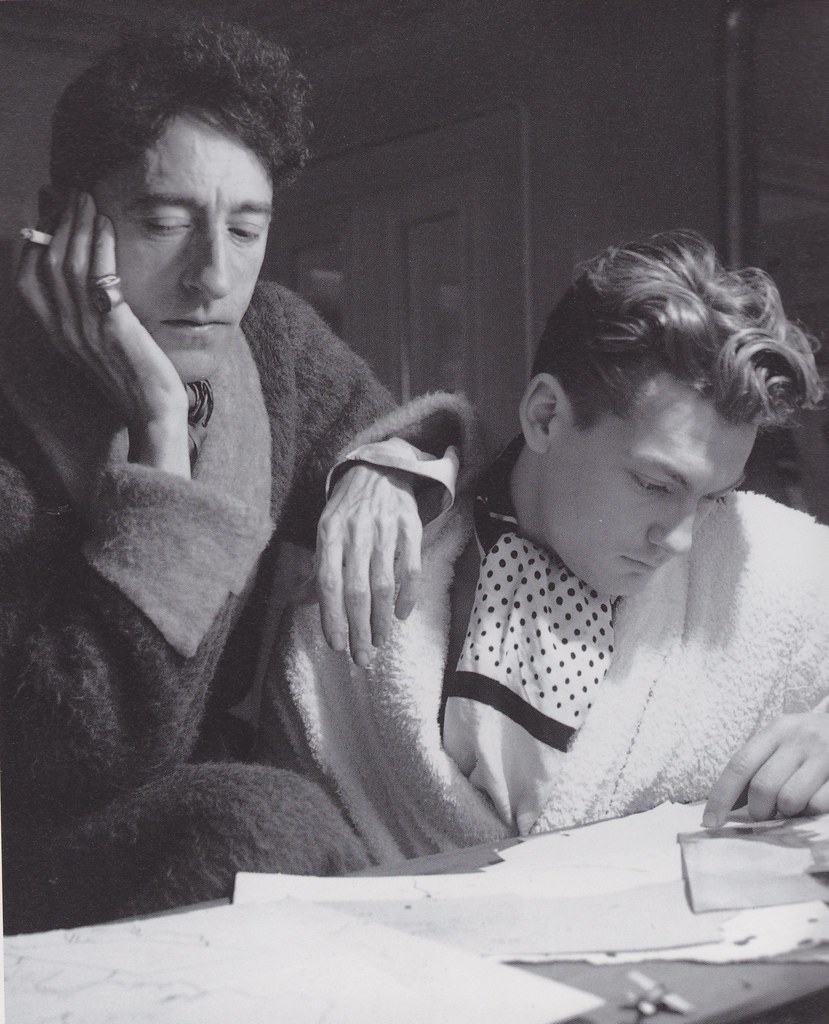In class we were talking about the classic momentum problem in which you throw your gold coins in one direction so you can slide off of the frozen lake in the other direction (seriously, it's a legit problem from Giancoli!) when a kid in the back row (JW) says "I'd just spit and save my money!" so I respond with "Oh, you're just like Gaston?"
After we shared a chuckle over this (Okay, maybe I was the only one who thought it was funny), I told the class the real deal was the 1946 Jean Cocteau version:
They looked at me blankly and we moved on.
This incident has me thinking about how, back in the day (at Swampscott High), a student (SD) and I started a short-lived "Foreign Film Club". It was fun and the memory inspired me to send out a proposal to show La Belle et La Bete one evening during winter week this year. Not sure if it will actually happen but now I have thoughts buzzing around in my head about this movie and about Art vs. Entertainment in general.....
-----------------------
I've seen this French masterpiece by Jean Cocteau (1946) at least half a dozen times and as with all great works of art, I have a different experience each time I watch it. I think the transcendent nature of art is captured a bit in my increasingly layered appreciation of the film:
I first saw it as a child in France with my grandparents. I remember being struck by the fact that they stayed and watched the entire movie with me attentively although I thought it was a simple child's fable at the time. (in retrospect it could not have been the first viewing for either of them!). Although I was primarily merely entertained by the movie, I was struck and haunted by the imagery and the one-layer deep impression of the plot: Beauty is more than skin deep ("Don't judge books by the covers!").
Later I saw it as a teenager and realized the story was about the transformative power of love and I also began to appreciate the technical feats in the filming of the scenes themselves: These all "firsts" in the history of Cinema and these "tricks" then became part of the vocabulary of all subsequent film makers!
Then I saw it in my 20's and thought about why my feelings for the restoration of the prince at the end so mixed? Why was the obvious, happy ending unsatisfying in some hard-to-pin-down way? Is the elimination of the beast an elimination of the essential appeal of the Jean Marais' split character? Is our inner beast something to be denied or celebrated? How can this movie leave me feeling like I just went to an art museum and was reading poetry at the same time?
I saw it again in my 30's and took the perspective of the woman-who-is-attracted-to-bad-boys archetype. What happens to your love and interest once you've "fixed" him? I also began to realize that the titular relation is not just about the woman (beauty) and the man (beast) and the man and himself (he is both a beauty and a beast).
I watched it again in my 40's and for the first time looked at the lead actor (Jean Marais who plays the beast, the Gaston-like character, and the final prince: three different beasts for the price of one!) on film knowing he was the director's lover. There an early scene where the camera lingers admiringly on his sprawled out form, lounging casually on a chair. How could I have missed that?
 |
| Jean Cocteau (L) and Jean Marais (R) |
Now, I'm gearing up to watch it again. How can we have beauty without beastliness? Are we defined by our flaws? Is perfection even interesting? I am sure I will leave this viewing with even more questions than I knew to ask before!










Just saw it one more time and noticed a few more things:
ReplyDelete-The Beast asks Belle not to look him in the eyes yet Avenant does not even look at her when he talks about his love for her
-Real tears turn to diamonds yet after the sisters use onions to generate fake tears, they small bad
-Fake jewelry is real jewelry on Belle but turns to something disgusting when held by her sisters. What makes something real? Is magic real because of belief and is love a kind of magic?
-Is the arrow of Diana that kills Avenant suppose to remind us of Cupid's arrow?
-Belle admits to loving Avenant and loving Bette? She responds with a "Yes... No" when asked if she is disappointed by the mash-up that is the prince... Does love always involve some disappointment?